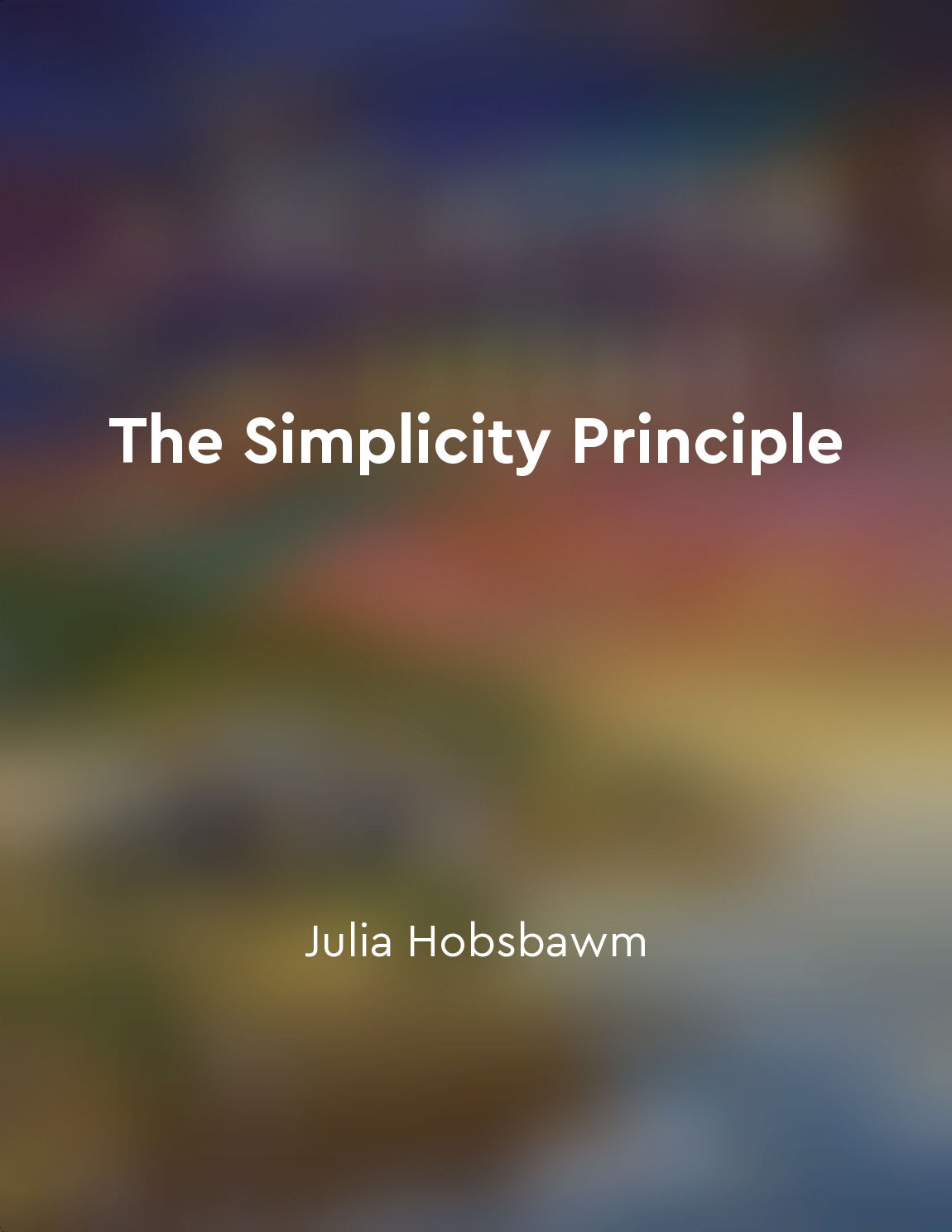Simplify your environment to reduce overwhelm from "summary" of The Simplicity Principle by Julia Hobsbawm
To reduce overwhelm, it is important to simplify your environment. This means decluttering your physical space, digital devices, and even your calendar. By removing unnecessary distractions and organizing your surroundings, you can create a sense of calm and focus. When your environment is simplified, it is easier to stay on track and be productive. One way to simplify your environment is by minimizing the number of possessions you own. Take a critical look at your belongings and ask yourself if you truly need each item. By letting go of things that no longer serve a purpose or bring you joy, you can create a more streamlined living space. This can help reduce feelings of stress and overwhelm that can come from being surrounded by clutter. In addition to decluttering physical spaces, it is important to simplify your digital environment as well. This means organizing your files, emails, and apps in a way that makes it easy to find what you need. By reducing digital clutter, you can improve your focus and productivity. Another aspect of simplifying your environment is managing your time effectively. This involves saying no to tasks or commitments that do not align with your priorities. By setting boundaries and creating a realistic schedule, you can avoid feeling overwhelmed by trying to do too much. Simplifying your calendar can help you focus on what truly matters and make the most of your time.- Simplifying your environment is a key strategy for reducing overwhelm and improving your well-being. By decluttering your physical and digital spaces, as well as managing your time effectively, you can create a sense of calm and clarity in your life. This can help you stay focused, productive, and less stressed in the face of life's challenges.


